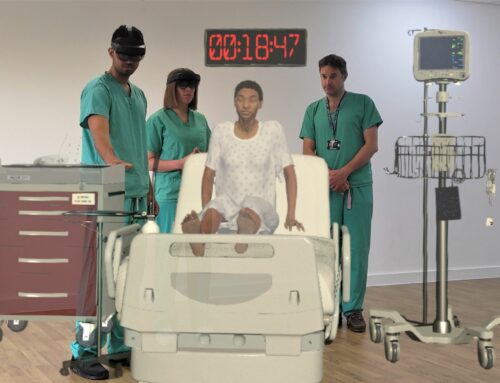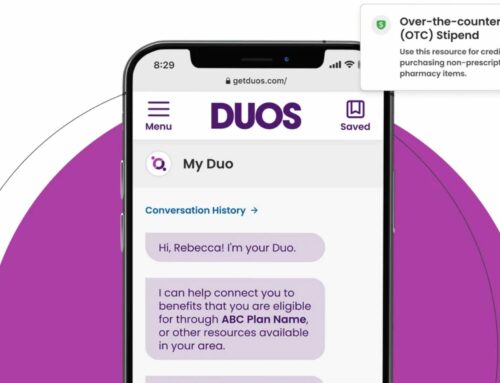The Current State of Healthcare According to Millennials:
Now the largest generation and with growing economic influence, millennials are quickly becoming a key demographic for healthcare consumerism. Most millennials are young, between the ages of 18 to 25, with the oldest reaching their mid-thirties. Particularly for the younger majority, millennials are just starting to take ownership of their own healthcare and are becoming more involved with figuring out their options, questions, and concerns.
Having grown up in a digital era that is focused on convenience, mobility, and on-demand access to products, services, and information the vast majority of millennials report that they are ‘not very’ or ‘not at all’ satisfied with the current healthcare system. In fact, most millennials are more likely to seek answers online than to visit a doctor’s office, and roughly 46% of millennials do not consider health insurance as a viable option because of cost and rigidity. They would rather self-diagnose using publicly available (mis)information, or simply ride out any health issues until they’re impossible to ignore.
Reaching this demographic by providing care on their terms should be a high priority for many healthcare providers. Not only is the wellbeing of this generation at risk, but as the demographic continues to grow in numbers and influence, so too will the demand and pressure for improved healthcare services. Eventually change will no longer be a choice but will become a requirement for economic survival. Those who have not adapted may find themselves going the way of Blockbuster video.
Addressing these concerns by making healthcare more convenient and accessible will not only result in delighted millennials, it will also improve accessibility for the older generation (many of whom have mobility issues), reduce wait times in local clinics and emergency rooms, and generally de-burden acute care settings by alleviating demand through alternative, flexible care models.
Why Telemedicine Makes Sense
Considering millennials’ preferences towards self-managed care and convenience, and the fact that more than 85% of the U.S. population between the ages of 18 and 29 currently view their smartphone an essential tool in their daily lives, telemedicine’s flexible delivery model, which allows both ad-hoc or self-scheduled remote appointments with relevant care providers using any video enabled device, makes it a viable care option for millennials.
Mobile Ready
One of the benefits of telemedicine is that it’s already tailored to fit within the current lifestyle trends of the youth. Most millennials do all of their banking, scheduling, socializing, and shopping online with the simple tap of a screen on their mobile device, and roughly 71% of millennials were interested in being able to schedule an appointment through mobile app and be able to manage their personal medical records online. Telemedicine is simply one more way to integrate management of their daily lives into the palm of their hands.
Breaking with Tradition
While making an appointment and meeting with a physician in their office is still the norm, having access to the same quality of care at the fraction of the cost and according to your schedule 24×7 makes telemedicine a top contender to disrupt the world of modern healthcare. Online tools, mobile apps, and wearable IoT devices are starting to make their way into mainstream healthcare settings and are already proving their value for improving the quality, convenience, and scalability of our healthcare system. Are you ready?
About the Authors
Dr. David A. Wanner, EdD
Chief Administrative Officer & Executive Vice President, Reach IPS
David Wanner is the Chief Administrative Officer & Executive Vice President at i360 Healthcare. He is an accomplished executive with decades of experience in healthcare service delivery. His uses his unique blend of leadership experience in enterprise information infrastructure, project management, vendor relationship management, software and hardware design/development, networking, and systems security to operationalize strategic visions and shape IT performance and responsiveness to support key business initiatives within the healthcare information technology field. A skilled change agent with a track record of transforming digital health environments, David is a pragmatic problem solver who finds innovative solutions to streamline care delivery processes. His strong administration and IT background is unique in solving real issues with IT solutions. He also has lengthy experience with Epic, Allscripts, McKesson, and Cerner electronic health records which allowed him to implement a number of transformational clinical programs.
Laurie Lafleur MBA, CIIP
Senior Consultant, Paragon Consulting Partners, LLC
Laurie Lafleur is a senior healthcare IT consultant at Paragon Consulting Partners, LLC. With nearly 20 years of relevant experience in software engineering, product marketing, and business strategy in the Healthcare IT and imaging informatics industries, her passion and focus are on improving the quality, accessibility, and efficiency of healthcare through technology innovation and adoption. To this end Laurie actively helps provider organizations of varying sizes and profiles to define forward-thinking IT strategies and stewards them through the technology selection, deployment, and adoption processes. As well, she works with vendor organizations to help them navigate market opportunities and challenges, refine their roadmaps, and launch beneficial and commercially viable new products to the industry.












